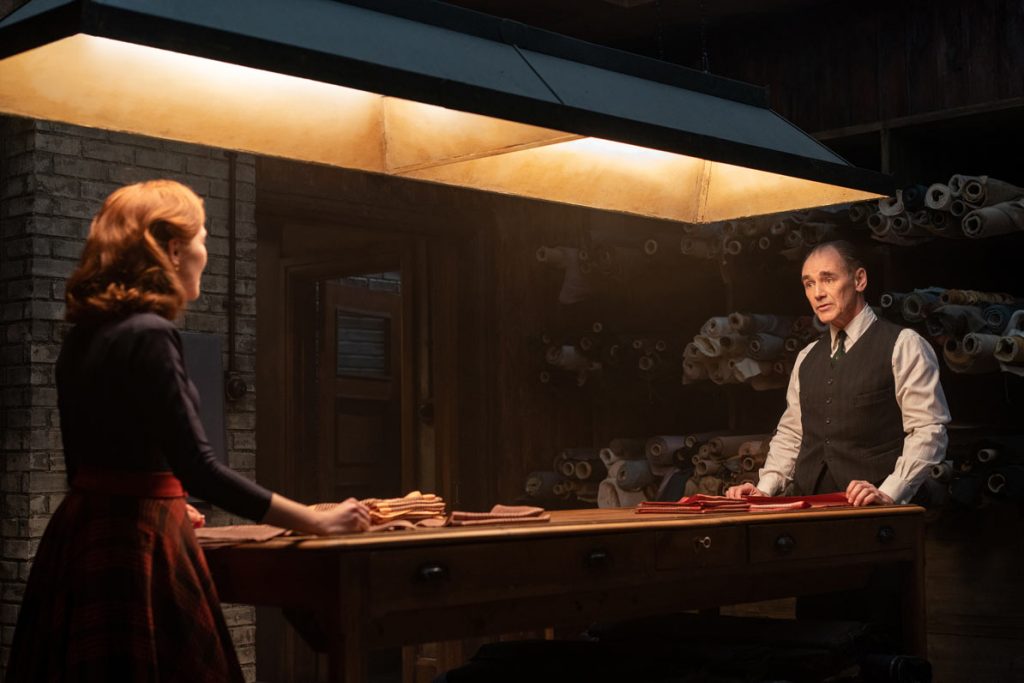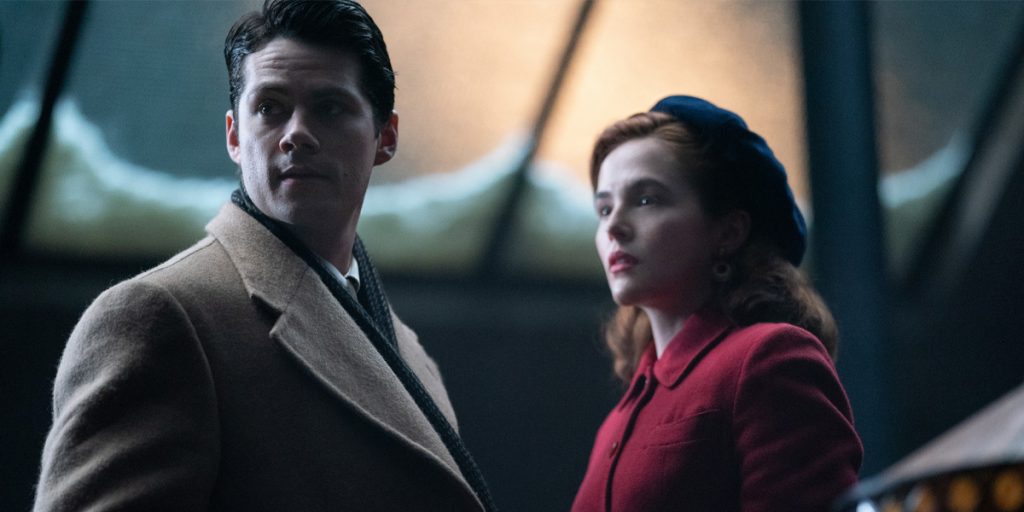The Outfit is a refreshingly elegant film that respects its audience and delivers an intricately thrilling time at the movies.
Films like The Outfit are becoming an ever-rarer treat, the kind of movie that still comes along occasionally, but increasingly uncommonly so that there is a deeply refreshing quality to its sophistication. In a word, it can be described as “adult,” but that is a potentially misleading evocation in a post-Deadpool era: The Outfit is decidedly not crass or inappropriate, nor is it explicitly sexual or ultra-violent in the way that so many movies dress up in R-rated clothing just to get away with being even more childish.
It’s a genuinely mature film, for grown-ups with the patience to be thoroughly entertained. Not that it’s a tedious affair — although it cleverly revels in tedium — it just doesn’t find its entertainment through extravagance. This is not the gangster film you seek out for tommy gun shootouts between men in big suits driving clumsy cars way too fast. As you may have gathered, The Outfit can be endlessly praised for what it isn’t, because it stands in such direct contrast to the overcrowded cinematic marketplace of excessive sound and fury. And sure, The Outfit is pure narrative exercise without much beneath the surface, but it scratches a particular itch for quality mature entertainment.
The film centers around a tailor — or cutter, he would insist — Leonard Burling (Mark Rylance), who finds himself caught in the middle of a dangerous game between the vicious gangsters who buy his suits. His apprentice, Mable (Zoey Deutch), is the only relationship in his life, and they seem to tacitly fill for each other the respective roles of father and daughter. Complicit by nature, it seems, he allows the Boyle crime family to set up a rendezvous in his shop. When son-of-the-boss Richie Boyle (Dylan O’Brien) and his accomplice Francis (Johnny Flynn) find an envelope containing a tape with dangerous information from a mysterious organization known only by their insignia and a name — “The Outfit” — Leonard’s shop becomes the center of a gang war.
The camera never leaves the shop. It’s a single-location thriller, in which we learn about the expansive world without from the confines of within. There are many great films that take place in an isolated environment, and it’s always exciting to see a movie that’s able to create a setting where the limited area we are shown believably exists as just a bubble within an entire fictional outside world. The Outfit, though, is distinct even amongst its peers, in that it applies this technique not just to the location, but even to its characters. What director Graham Moore does here brilliantly is focus as much on the deceptively twisty narrative as the characters’ reactions to each development. He sets up these long takes as the listener’s face ripples with their reactions at the intaking of new information, ranging from uncertainty to rage to acceptance. Instead of just showing events and the characters’ reactions to them, we experience the events through the characters’ reactions to them, so that the full emotional weight of every development is felt.

To say that there are no “big” moments would be a disservice, but The Outfit is a film of more than just sensationalism; it’s a character thriller, in which such big moments are unnecessary because the subtleties are so powerful. It’s an uncrowded experience, that for all its narrative intricacies always makes sure to allow every moment to live and breathe, and to carry palpable weight. A film that relies on such nuances in character reactions leaves the actors in a position where they are called to invoke a strong sense of self-control in hiding their expressions, while also perceptibly expressing to the audience the entire emotional weight of every compounding moment – including, of course, the pressure of hiding those very reactions. Leonard (or “English,” as the gangsters refer to him) is a calm presence, non-reactive and with demonstrable restraint, a man who governs his emotions and is in total control of himself. Rylance’s performance is remarkably complex, but deceptively so – this is not a film of “big” moments.
Rylance carries the film with the pauses between his words, the spaces between what he does and the clarity of why he’s doing it. He is insistent that he is not an artist, nor a creative mind. He is a craftsman who finds comfort in meticulous routine, and he approaches life in the same way: thoughtfully, unhurriedly, efficiently, and decently. The Outfit throws twist after twist at us, to the point where even the characters point out the sheer convolution of it, but the film never devolves into confusion. There is a clear and confident trajectory, and there is a calm sense of control to the ever-compressing chaos. The Outfit flips the usual third-act twist; it pretends to pull the rug from under you for 90 minutes, only to comfortingly reveal that it had been holding our hand making sure we were ok the whole time.
The Outfit is a revelation in that there’s no melodramatic exaggeration, just a really strong story and complete confidence in its narrative. It’s a refreshingly sophisticated time at the movies, where you can go and be challenged by a film to take you along a journey that requires your full attention to appreciate, but rewards in spades if you do.
The Outfit was released theatrically in the US on March 18, and in the UK on April 8, 2022.

